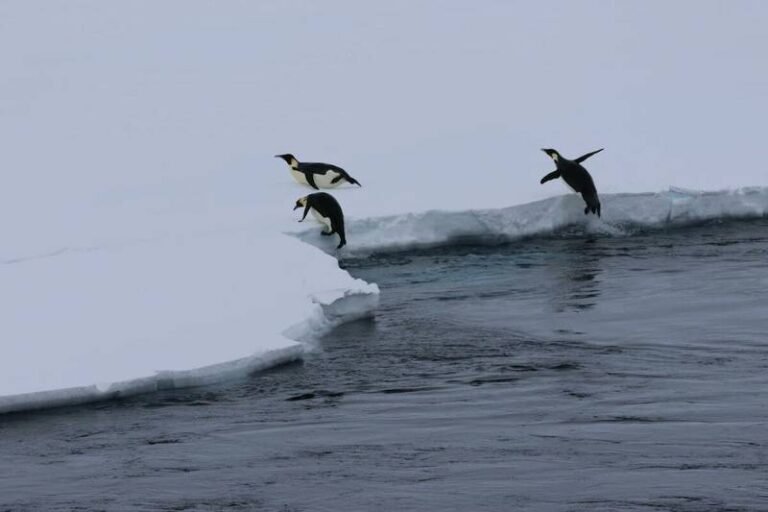Is a Regime Shift Underway in Antarctica?
Recent record lows in Antarctic sea-ice coverage have scientists questioning whether a ‘regime shift’ to a new state of diminished ice is underway. A new study published in PNAS Nexus discusses the potential impacts of this shift on climate, ecology, and society.
The Impacts of Diminished Sea-Ice Coverage
According to Dr. Edward Doddridge, an oceanographer with the Australian Antarctic Program Partnership, the impacts of decreased sea-ice coverage could be far-reaching. These impacts include ocean warming, increased iceberg calving, habitat loss, sea-level rise, and effects on fisheries, Antarctic tourism, and even global mental health.
The research team identified three key impacts of sea-ice loss:
- Reduced summer sea-ice cover exposes more of the ocean to sunlight, leading to surface water warming and further sea-ice loss. This can also result in increased melting under glacial ice shelves and affect global ocean currents.
- Sea-ice loss exposes ice shelves to damaging ocean swells and storms, weakening the shelves and contributing to iceberg calving. This can accelerate ice flow from the interior of Antarctica, leading to sea-level rise.
- Sea ice serves as breeding habitat for various species and a source of food for Antarctic krill. Adverse sea-ice conditions could lead to population declines in these species.
Socio-Economic and Wellbeing Impacts
In addition to ecological impacts, the study also highlights the potential socio-economic and wellbeing impacts of diminished sea-ice coverage. These impacts could affect fisheries, tourism, scientific research, ice-navigation, coastal operations, and global mental health.
For example, shorter sea-ice seasons could reduce the window for resupplying Antarctic stations. Increased shipping pressures, alien species incursions, and fuel spills are also concerns.
Urgent Need for Action
Dr. Petra Heil, a co-author of the study and sea-ice system expert, emphasized the need for ongoing measurements of sea-ice variables and sub-surface ocean variables to better understand the recent sea-ice deficits. The study underscores the importance of immediate and sustained action to reduce greenhouse gas emissions and preserve the Antarctic environment.
As Dr. Heil stated, “To conserve and preserve the physical environment and ecosystems of Antarctica and the Southern Ocean, we must prioritize an immediate and sustained transition to net zero greenhouse gas emissions.”
Ultimately, the decision for immediate and deep action will provide the best future-proofing in terms of lifestyle and economic values.

